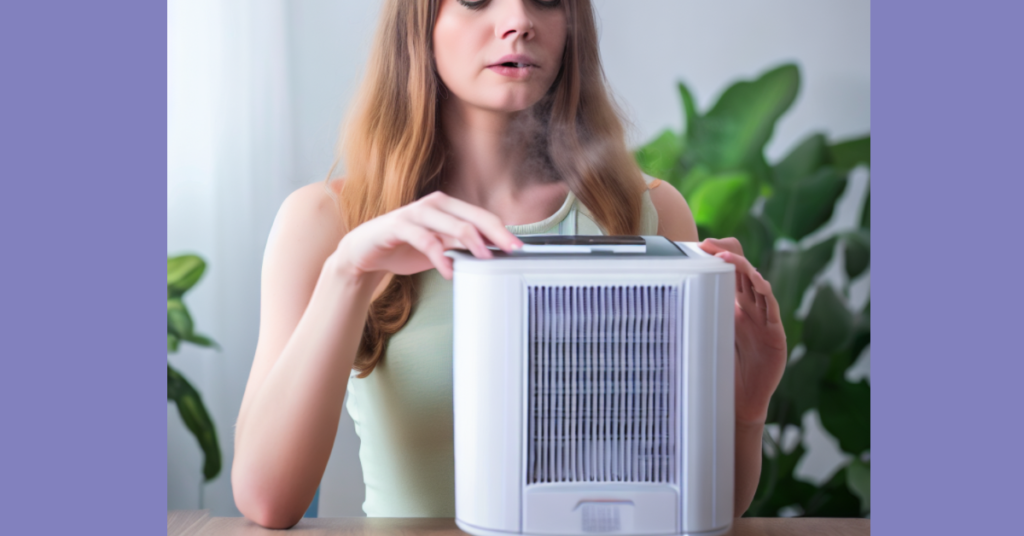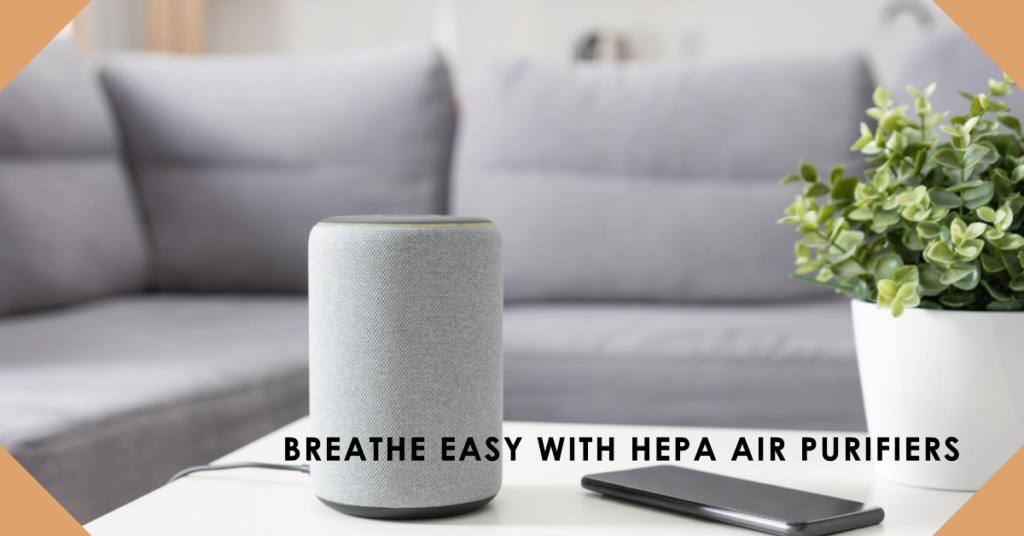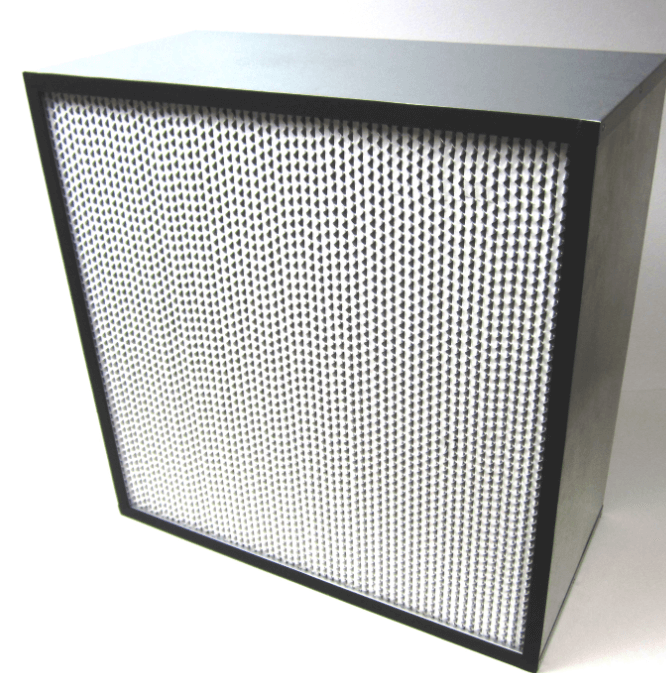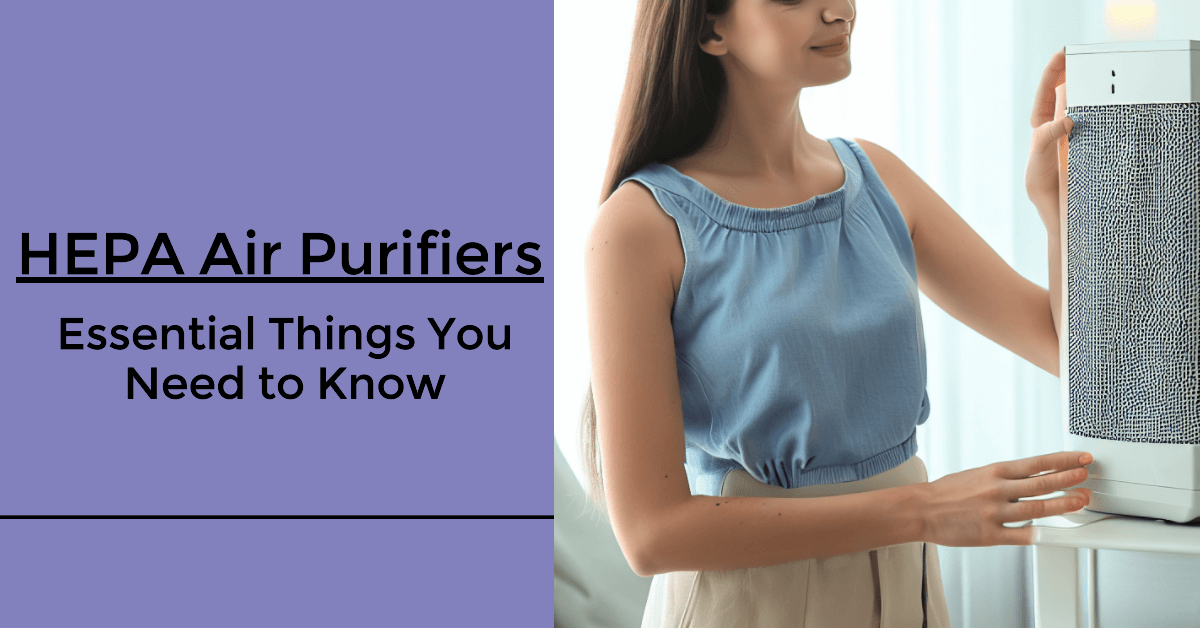When it comes to improving the air quality in your house or workspace, HEPA air purifiers are a very popular choice. HEPA Air Purifiers use advanced technology to trap tiny particles and make your air cleaner and healthier.
In this article we will see what exactly is it and why is it considered essential for better indoor air? In this article, we’ll break down its basics, explore their benefits and guide you through the process of selecting the right one for your needs. We’ll explore what makes a true hepa air purifier.
What Is HEPA Air Purifiers?
HEPA stands for High Efficiency Particulate Air. HEPA Air Filters are specifically designed to trap tiny particles in the air. These filters are super effective at removing allergens, smoke, dust and other pollutants.
HEPA filters use a combination of both physical and mechanical filtration technique to capture particles as small as 0.30 microns in size. If you dont guage how small particle it can capture then for your information a human hair is typically about 50 microns in diameter. Hope you got the point. These filters are so efficient that they can capture even the tiniest of airborne contaminants. It makes them an essential tool in the fight against indoor air pollution.

Benefits of HEPA Air Purifier
Friend let me tell you there are many advantages of using hepa air purifiers. From tackling smoke and mold to reducing dust, relief for pet allergies and asthma, these purifiers are versatile.
Following are some benefits of HEPA Air Purifiers:
- Improved Air Quality: The first benefit whih comes when using a HEPA air purifier is that it significantly improves the quality of the air you breathe indoors. It removes that is not good like allergens, dust, pet dander and pollutants, helping you breathe easier.
- Relief from Allergy: If you suffer from allergies, a HEPA air purifier can be a game changer. It reduces allergens in the air, providing relief from sneezing, itching and congestion.
- Smoke and Odor Removal: HEPA air purifiers equipped with activated carbon filters can effectively remove smoke and odors, making them ideal for smokers or those with pets.
- Asthma Management: For individuals with asthma, you know how clean indoor air is crucial. HEPA filters can help by removing asthma triggers like pollen and mold spores.
- Better Sleep: Cleaner air can lead to better sleep quality. HEPA purifiers create a more comfortable sleeping environment by reducing irritants in the air.

How to choose the Right HEPA Air Purifier?
Selecting the perfect air purifier can be a difficult job. Let’s discuss how to select the right HEPA air purifier for your specific needs. You can consider following factors:
- Room Size: Determine the square footage of your room where you plan to use the air purifier. Different purifiers are designed for different room sizes, so go for the one that matches your space requirements.
- Filter Type: HEPA air purifiers can have additional filters, like activated carbon or UV filters, for specific purposes. Consider your air quality concerns when selecting the filter type.
- Noise Level: Some air purifier machines can be noisy, which might be distracting. Check the decibel rating on product to ensure it’s suitable for you.
- Maintenance: Look into the maintenance requirements of the air purifier, including filter replacement costs and how easy is its cleaning.
- Energy Efficiency: Defiitely Opt for an energy efficient models to save on electricity bills and reduce your cost and environmental footprint.
In market you can see there are different kinds of air purifiers available like large room hepa air purifier, a commercial hepa air purifier and the cutting-edge ultra hepa air purifier. Making an informed choice ensures you get the air quality you deserve.
Where to Place Your HEPA Air Purifier
Placement matters when it comes to getting the most out of your HEPA air purifier. Some tips on where to position it to get most out of it:
- Bedroom: As you spent msot of time in bedroom so placing an air purifier in your bedroom can lead to better sleep quality, especially if you suffer from allergies or asthma.
- Living Room: The living room is often a high-traffic area where allergens accumulate. An air purifier here can help maintain cleaner air for your family.
- Home Office: If you work from home, having an air purifier in your office can improve your productivity and overall well-being.
You can learn why having a home hepa air purifier is essential and how a quiet hepa air purifier can create a serene atmosphere. An office hepa air purifier can be a game-changer for your workspace.
HEPA Air Purifiers for Allergy Relief
For allergy sufferers these purifiers can be really hepful. They effectively remove common allergens from the air, providing you relief. Always look for Hepa certified air purifiers. Here are some allergens that HEPA filters remove:
- Pollen: Speciffically during the spring and fall seasons, pollen can be a major allergen. These purifiers can help reduce pollen levels indoors.
- Pet Dander: Pets dander can trigger allergies. A HEPA filter captures these tiny particles, making it easier to live with your pet friends.
- Mold Spores: Mold spores are a common indoor allergen. HEPA filters help us by trapping these spores, helping those with mold allergies breathe easier.
Maintenance and Replacement of Filter
To keep your HEPA air purifier running efficiently, regular maintenance is very important. Following things you must know:
- Filter Replacement: Most of HEPA purifiers come with replaceable filters. So follow the manufacturer’s recommendations on when to change the filters.
- Cleaning: Dust particles can accumulate on the outside of the purifier. Regularly clean the exterior to ensure optimal performance.

Advanced Features to Look For
When choosing a HEPA air purifier, look for what are various advanced features that can enhance its effectiveness. Following are some of the features to consider:
- Smart Controls: Some purifiers offer android or iphone apps for remote control and monitoring.
- Air Quality Sensors: Purifiers with built-in sensors can adjust their settings based on the detected air quality.
- Multiple Fan Speeds: Adjust the fan speed for customized purification.
- Timer Function: Set your purifier to run at specific times, optimizing energy usage.
Tech enthusiasts will appreciate the benefits of an intelligent hepa air purifier, which can be controlled with ease.
FAQs
Is A HEPA air purifier worth it?
Yes, HEPA air purifiers are worth it for improving your indoor air quality by effectively removing allergens, dust, pet dander and even some viruses and bacteria from the air.
What is HEPA in air purifiers?
HEPA stands for High-Efficiency Particulate Air. It’s a type of filter used in air purifiers that can capture tiny particles, including dust, pollen and airborne contaminants, with high efficiency.
Does HEPA air purifier help with mold?
Yes, HEPA air purifiers can help with mold by capturing mold spores and preventing them from circulating in the air. However, they do not eliminate the source of the mold, so it’s important to address the root cause.
What is the difference between an air purifier and a HEPA air purifier?
HEPA air purifiers use HEPA filters, which are highly efficient at trapping particles, while standard air purifiers may use different types of filters that may not be as effective at capturing tiny particles.
What are the two disadvantages of HEPA filters?
Two disadvantages of HEPA filters are their relatively high cost and the need for periodic filter replacement, which can add to the long-term expenses of an air purifier.
Is there a downside to air purifiers?
Some downsides to air purifiers include the cost of purchasing and maintaining them, potential noise from the device and the need for regular filter replacement.
Why are HEPA filters rarely used in homes?
HEPA filters are commonly used in homes, but they may not be installed in every room or HVAC system due to their higher cost compared to standard filters. However, standalone HEPA air purifiers are quite popular.
What are the side effects of HEPA air purifier?
HEPA air purifiers typically do not have significant side effects. However, in rare cases, very sensitive individuals may experience minor irritation due to the cleaner air.
Do HEPA filters remove dust?
Yes, HEPA filters are highly effective at removing dust and dust mites from the air, helping to create a cleaner and healthier indoor environment.
What kills mold spores in the air?
HEPA air purifiers can capture mold spores, but to effectively kill mold, you need to address the source by eliminating excess moisture and cleaning affected areas.
Do air purifiers catch black mold?
Air purifiers, including HEPA models, can capture black mold spores. However, they do not eliminate the source of the mold or its toxins.
What is better than HEPA air purifier?
Some advanced air purifiers use additional technologies like UV-C light, activated carbon filters or electrostatic precipitators, which can be even more effective than HEPA filters for certain contaminants.
What do HEPA filters not remove?
HEPA filters are not effective at removing gases, odors or volatile organic compounds (VOCs) from the air. For these issues, you may need additional filtration, such as activated carbon filters.
Are indoor HEPA filters worth it?
Indoor HEPA filters, especially in air purifiers, are worth it for improving indoor air quality and reducing allergens. They can provide significant health benefits for allergy and asthma sufferers.
Can HEPA filter remove mold spores?
Yes, HEPA filters can effectively remove mold spores from the air. HEPA (High-Efficiency Particulate Air) filters are designed to capture particles as small as 0.3 microns with high efficiency, which includes most mold spores. Using a HEPA air purifier can help reduce the concentration of mold spores in indoor air, improving air quality and potentially alleviating mold-related allergy symptoms. However, it’s important to note that while HEPA filters can capture mold spores, they do not eliminate the source of the mold or its toxins. To effectively address mold issues, you should also identify and eliminate the source of moisture that is promoting mold growth and clean any affected areas.
How often should I replace the HEPA filter?
Filter replacement frequency depends on usage and the manufacturer’s recommendations. Typically, every 6 to 12 months is a good guideline.
Can HEPA air purifiers remove odors from cooking?
HEPA filters are effective at removing particulate matter but may not eliminate strong cooking odors. Look for models with activated carbon filters for odor removal.
DheerajSonwane is a dedicated writer with expertise in air purification technologies. He focuses on providing well-researched content to help readers improve indoor air quality in homes and businesses. As the lead writer at AirPurifierMaster.com, Dheeraj offers practical advice his insightful reviews guide individuals in choosing the best air purifiers for their needs.


12 thoughts on “HEPA Air Purifiers : Things You Need to Know”